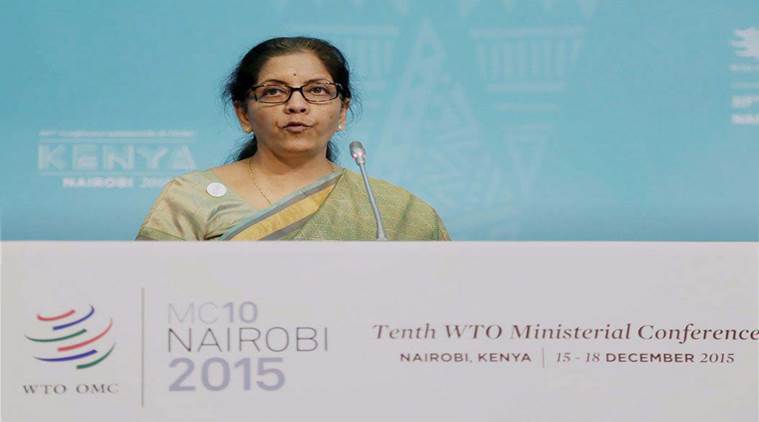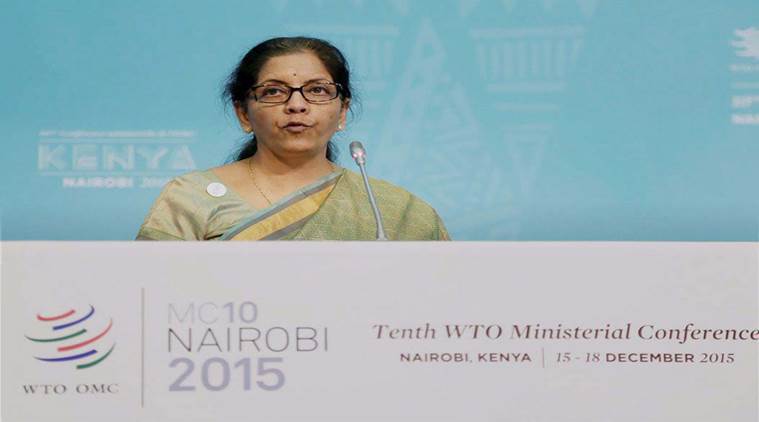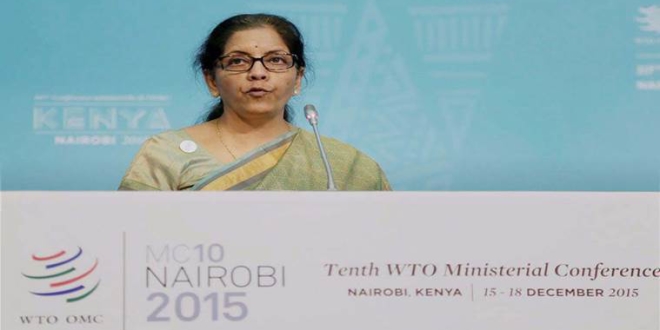
 Nairobi: MoS for Commerce and Industry Nirmala Sitharaman delivering her statement at the plenary Session of WTO’s 10th Ministerial Conference, in Nairobi. (Source: PTI)
Nairobi: MoS for Commerce and Industry Nirmala Sitharaman delivering her statement at the plenary Session of WTO’s 10th Ministerial Conference, in Nairobi. (Source: PTI)
The Tenth WTO Ministerial Conference, which concluded in Nairobi on Friday, has been congratulated by the organisation that represents 162 member nations for securing a “historic agreement” on several trade initiatives and commitments. The rich countries view it as a breakthrough after 15 years of the Doha round, with six ministerial-level decisions on agriculture, cotton and other issues, including a commitment to abolish export subsidies for farm exports, public stockholding for food security purposes, a special safeguard mechanism for developing countries, measures related to cotton and preferential treatment for least developed countries in the area of services.
For India, which has held out on the reaffirmation of the declaration and decisions adopted at the Doha meeting in 2001, the outcome may well be disappointing, as reflected in Commerce Minister Nirmala Sitharaman’s comments in the aftermath. At stake was the right to provide subsidies to farmers in a country where 85 per cent of farmers have holdings of less than five acres, and that too given the backdrop of rural distress after successive years of drought. At the Nairobi conference, members of developed countries have committed to removing export subsidies immediately, except for a handful of agricultural products, while developing countries will do it by 2018, with flexibility to cover marketing and transport costs for agriculture exports until the end of 2023. These relate to livelihood issues in an economy like India, even as some of the experiments with the Direct Benefits Transfer scheme, as in Uttar Pradesh, show that it can gradually eliminate inefficiencies. Indeed, it would be desirable to hasten the speed of this change but questions of political feasibility will also have to be taken into account.
Equally important, or more so from the country’s viewpoint, was the issue of a special safeguard mechanism or SSM that allows India to raise tariffs to protect the interests of local farmers against surges in imports. The ministerial decision on SSM for developing countries recognises that they will have the right to temporarily increase tariffs in the face of import surges while committing members to engage constructively in finding a permanent solution on public stockholding for food security. That should offer comfort given that food security is an article of faith for the Indian polity. The perceived setbacks apart, India has stakes in a multilateral trading system, notwithstanding the spate of regional trade agreements. A rules-based system has much more to offer.
![]()
Source: New feed






